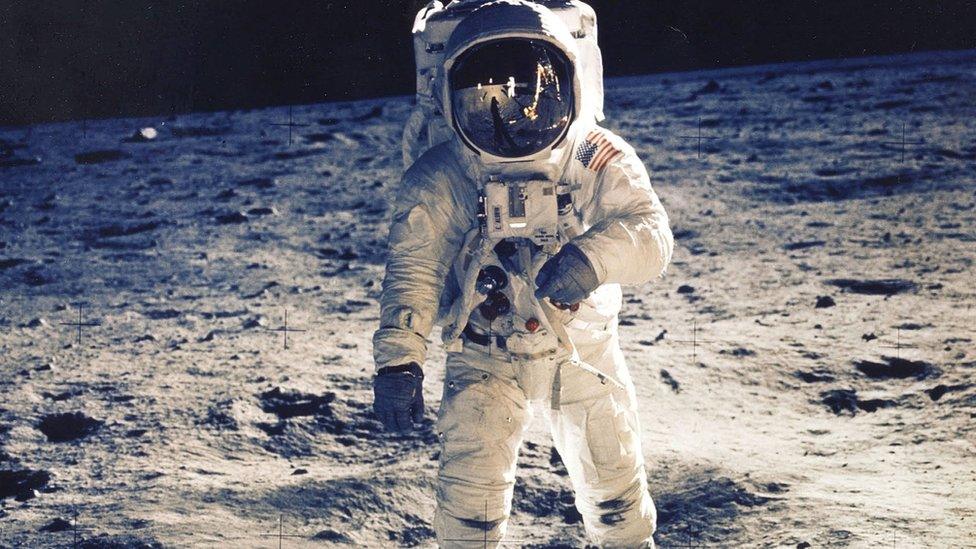Nasa SpaceX launch: Astronauts head to International Space Station
- Published
- comments
SpaceX: Resilience takes four astronauts to ISS
Four astronauts are heading to the International Space Station (ISS) on the privately-funded SpaceX rocket this morning.
The flight took off a day later than planned, having been delayed due to winds that could have made the take-off unsafe.
Nasa is using the company SpaceX, which is owned by billionaire Elon Musk, to fly a crew to and from the ISS so they can work there for six months, before coming back.
The crew leaving the Earth's orbit in the seven-seat Crew Dragon capsule includes three US Nasa astronauts and another from Japan's space agency JAXA.
It will take the astronauts just over a day to reach the ISS where they will join another Nasa astronaut and two Russian cosmonauts in conducting science experiments on the station.
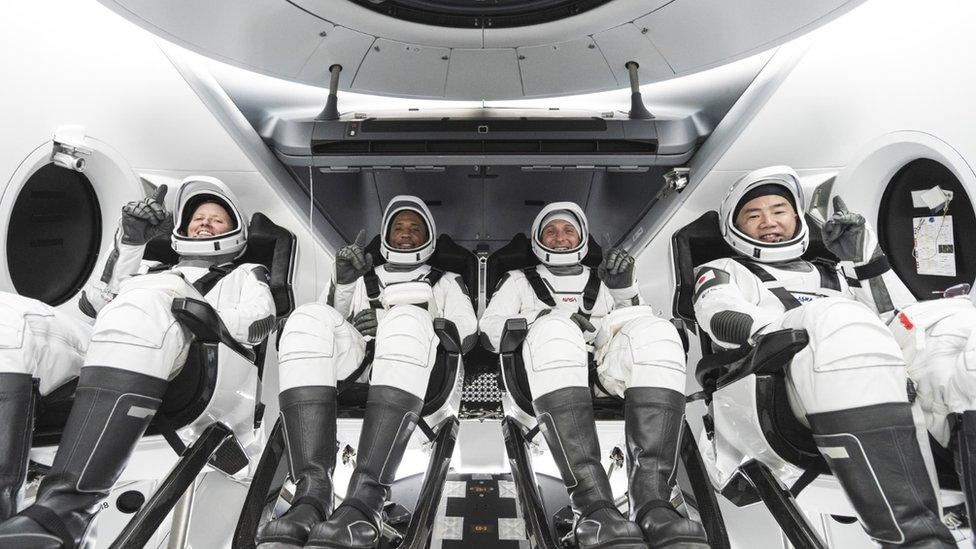
WATCH: How can the weather impact a space mission?
Nasa administrator Jim Bridenstine announced the news on Twitter, saying "Resilience rises. The Crew-1 mission has lifted off on a Falcon 9 rocket from @NasaKennedy at 7:27pm ET (Eastern Time)."
The launch had been delayed twice - an original launch date of Halloween, 31 October was postponed because of an "unexpected" problem with the rocket that had to be checked.
The launch
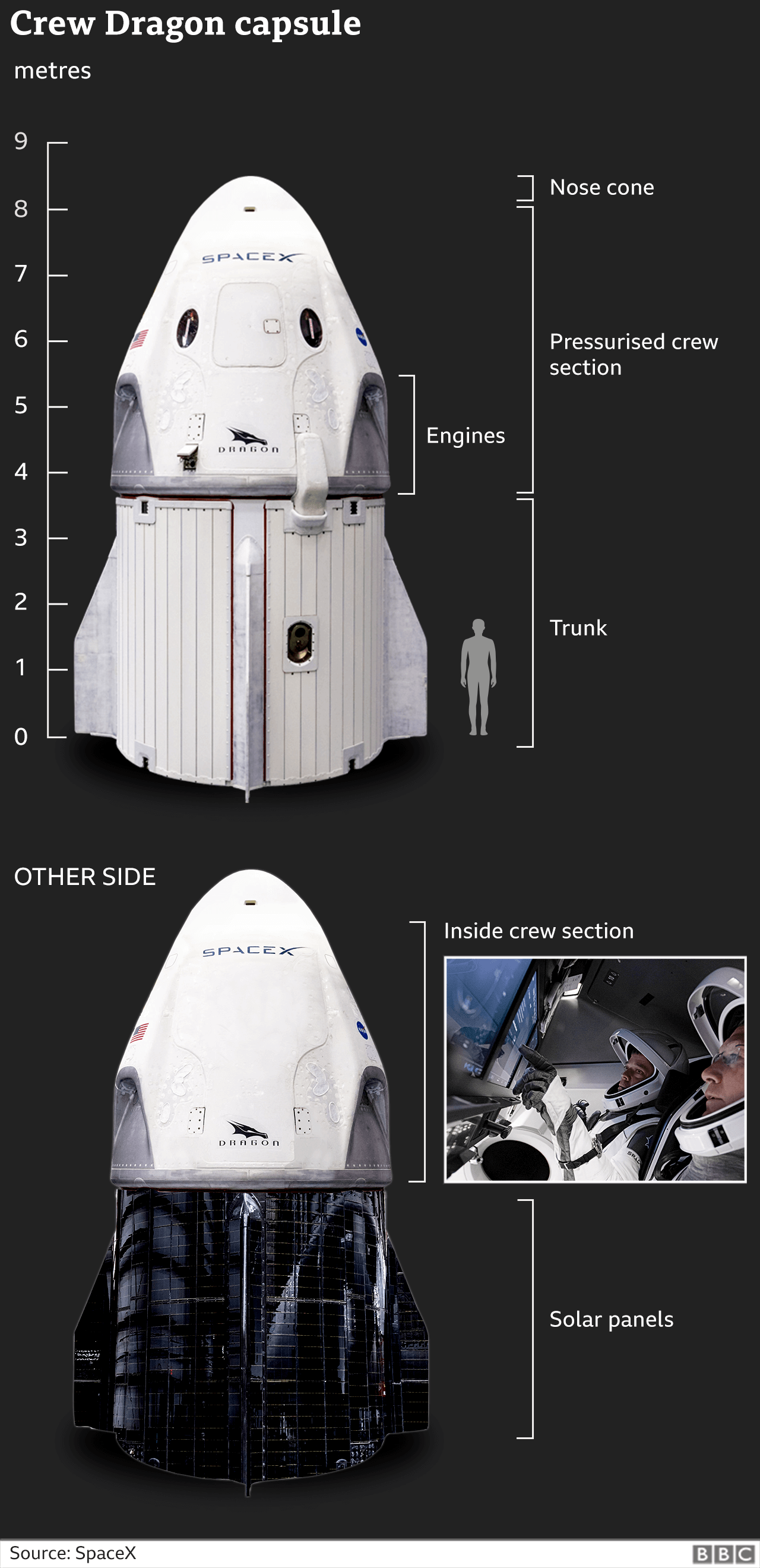
Astronauts Mike Hopkins, Victor Glover, Shannon Walker and Soichi Noguchi are making the journey to the space station.
The rocket separates in planned stages after lift-off.
The first stage sees rocket boosters return to Earth. landing on a SpaceX landing ship off the coast of Florida, while the second part will continue the journey with the capsule.
Once in orbit, the capsule separates from the second stage and heads to the ISS.
Once there, the astronauts will spend six months conducting scientific experiments and other important tasks.
SpaceX made history last year by launching and then landing three rocket boosters
History makers
Elon Musk's SpaceX company made history in May when US astronauts Robert Behnken and Douglas Hurley travelled to the space station and back.
That mission demonstrated that the SpaceX rocket was able to perform crewed missions safely.
The US space agency announced this week that it had approved SpaceX's Crew Dragon capsule and Falcon 9 rocket to carry astronauts, making it the first commercial human space flight system in history.
Elon Musk said in a statement: "This is a great honour that inspires confidence in our endeavour to return to the Moon, travel to Mars, and ultimately help humanity become multi-planetary."
Jim Bridenstine, NASA administrator, said: "I'm extremely proud to say we are returning regular human spaceflight launches to American soil on an American rocket and spacecraft."
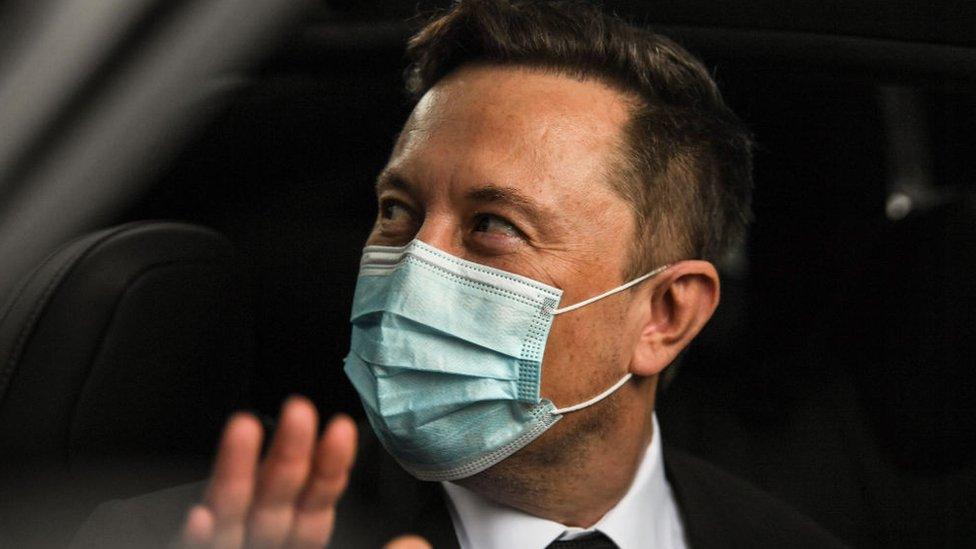
SpaceX owner Elon Musk says he wants to see "humanity become multi-planetary"
Saving money
Nasa's Space Shuttle programme ended in 2011, meaning Russia's space agency Roscosmos had been used to transport American astronauts to the space station, costing around 90 million US dollars (£67m) per person.
Although, still expensive SpaceX costs about $55m (£40m) per astronaut.
Phil McAlister, director of commercial spaceflight development at Nasa, said in a statement: "Nasa's partnership with American private industry is changing the arc of human spaceflight history by opening access to low-Earth orbit and the International Space Station to more people, more science and more commercial opportunities.
"We are truly in the beginning of a new era of human spaceflight."
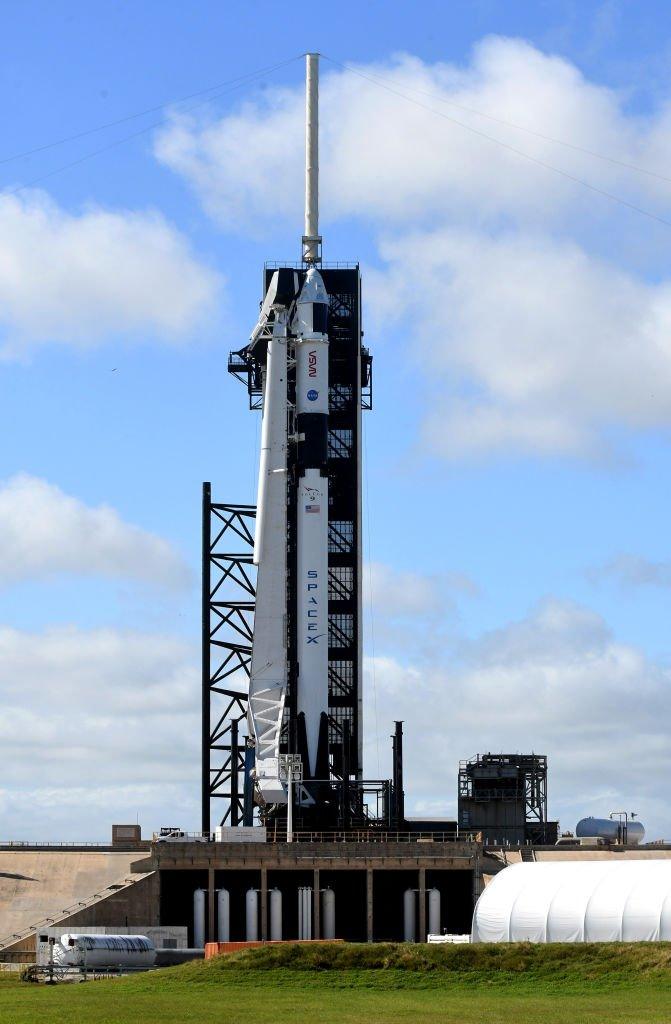
A SpaceX Falcon 9 rocket carrying the Crew Dragon spacecraft is seen at pad 39A at the Kennedy Space Center in Florida
- Published1 June 2020
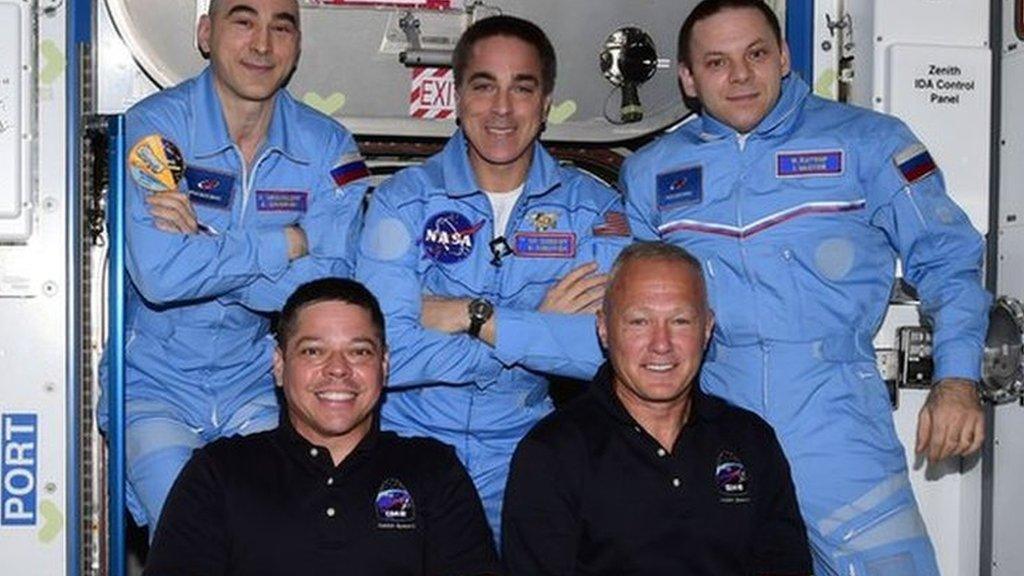
- Published14 September 2020
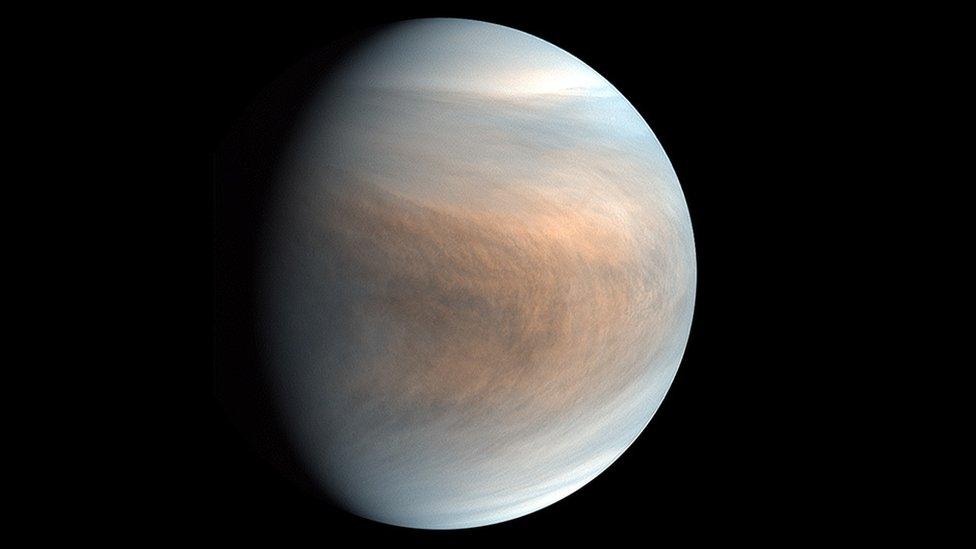
- Published16 July 2024
